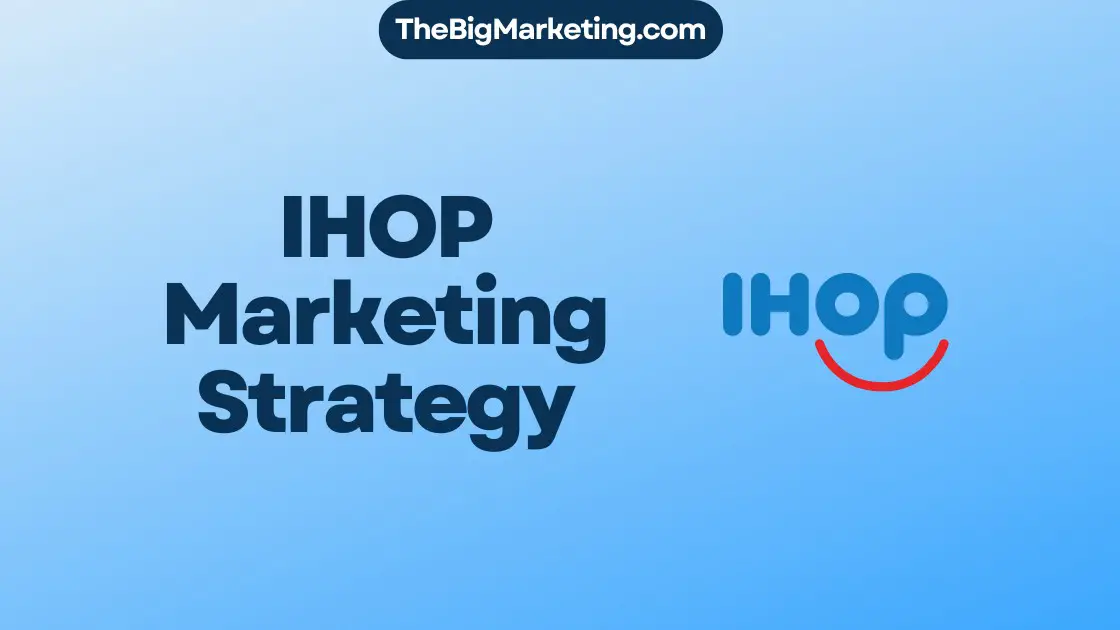Corporate social responsibility (CSR) in marketing is not just about charities. It ties a company’s economic, social, and environmental missions together. Companies use it to benefit society and themselves too. CSR helps in building a strong brand, getting customers who share the same values, and promoting ethical practices.
In this article, we take a closer look at how CSR makes a difference. We will also share real-world success stories of CSR initiatives.
Key Takeaways:
- Corporate social responsibility (CSR) in marketing involves aligning a company’s economic, social, and environmental goals.
- CSR helps businesses build their brand image, attract like-minded customers, and promote responsible business practices.
- Real-world examples of successful CSR initiatives will be provided in this article.
- CSR is a powerful strategy for eLearning companies to create shared value and promote sustainable business practices.
- Measuring the ROI of CSR marketing is important for evaluating the success of these initiatives.
What is CSR in Marketing?
CSR in marketing focuses on both community and company benefits. It combines economic, social, and environmental efforts. The United Nations Industrial Development Organization (UNIDO) says CSR is about finding balance.
Social responsibility is key in marketing. It includes socially responsible actions in marketing plans. This attracts customers wanting to make a positive impact and support value-aligned businesses.
UNIDO’s Definition of CSR
UNIDO offers a deeper look at CSR. It defines it as businesses helping in sustainable development. This includes working with employees, their families, local communities, and beyond. It aims for shared value for business and society.
Marketing with social responsibility is crucial for building a good brand image. It appeals to socially conscious buyers and encourages responsible practices. Adding CSR to marketing shows a company’s dedication to social and environmental issues.
We will discuss the role of social responsibility in marketing next. We’ll see how CSR benefits eLearning companies and look at successful CSR marketing examples.
Importance of Social Responsibility in Marketing
Social responsibility is key in marketing, offering companies big benefits. By aligning strategies with stakeholder expectations, businesses can build a positive brand image. This trust wins over their target audience.
Effectively communicating social efforts attracts customers who share these values. Also, it makes a positive impact. Adding social responsibility to marketing campaigns helps build partnerships. It also increases the company’s influence.
CSR in marketing grows customer loyalty too. Customers feel connected to the company’s responsible business practices.
Incorporating social responsibility helps attract new customers. Consumers care about a company’s values and the causes it supports. This way, businesses stand out from competitors.
Social responsibility also boosts employee morale. When workers see their company making an impact, they feel proud. This improves worker retention and attracts those passionate about social responsibility.
Building trust is another key benefit. When companies are open and authentic about their CSR efforts, customers see them as trustworthy. This builds loyalty and can lead to more word-of-mouth marketing.
Example Table:
| Benefits of Social Responsibility in Marketing |
|---|
| Attracting new customers |
| Engaging and retaining employees |
| Building trust and customer loyalty |
Embracing social responsibility in marketing benefits both businesses and society. It helps attract new customers, engage employees, and build trust. CSR in marketing strategies is beneficial for all.
Benefits of CSR in Marketing for eLearning Companies
CSR initiatives in marketing offer eLearning companies many advantages. They help gain positive press and build a solid reputation. This means customers who care about causes will be drawn to the business. Also, attracting and keeping talented employees becomes easier with strong CSR programs. Ultimately, CSR initiatives improve the company’s growth and profit.
Incorporating CSR into marketing strategies brings plenty of benefits. It generates positive press and boosts the company’s image. This is key for winning customer trust and loyalty. In the end, it helps the company succeed for a long time.
eLearning companies that adopt CSR attract customers who value social responsibility. Today’s consumers want to buy from businesses that make a positive social impact. Through CSR, eLearning companies can stand out from competitors.
CSR is also essential for attracting and keeping talented employees. People today want to work for companies that are socially responsible. eLearning companies with strong CSR initiatives lure in the best employees. This leads to a more dedicated and productive team.
Lastly, CSR initiatives can boost eLearning companies’ financial performance. While CSR’s main aim is to benefit society, it also offers financial gains. It builds a strong reputation, attracts loyal customers, and keeps talented staff. This helps businesses grow in a sustainable way.
| Benefits of CSR in Marketing for eLearning Companies |
|---|
| – Generating positive press |
| – Enhancing company reputation |
| – Attracting socially conscious customers |
| – Attracting and retaining talented employees |
| – Positive impact on the bottom line |
| – Contributing to overall business growth |
How CSR Promotes Sustainable Business for eLearning Companies
CSR activities are vital for eLearning companies aiming for sustainability. By adding corporate social responsibility to their marketing, they meet several environmental goals.
Positive Publicity and Strong Brand Reputation
CSR efforts boost positive views of eLearning firms. This shows they care about social and environment issues. This good image builds a strong brand and shows the company as caring and sustainable.
Customer Appeal and Loyalty
eLearning firms draw eco-friendly customers with their CSR work. People choose brands that match their values. This makes customers loyal to brands that focus on sustainability.
Talent Attraction and Employee Retention
Companies focused on CSR attract employees who want meaningful work. They like working for companies that aim to make a difference. This keeps employees happy and fulfilled in their jobs.
Cost Reduction and Improved Bottom Line
Sustainable practices save money for eLearning companies. Using less resources and eco-friendly tech lowers costs. This boosts the company’s growth and profits.
CSR helps eLearning firms build a business that cares about society and the environment. Positive image, customer loyalty, happy workers, and cost savings make a big impact. This ensures they’re making a difference in the world.
Examples of Successful CSR Marketing Campaigns
CSR marketing campaigns show us how businesses can mix corporate social responsibility into their marketing to create positive change. These examples reveal the different ways businesses can highlight CSR in their marketing strategies.
Tentree
Tentree’s “Climate Plus” plan is a top-notch CSR marketing example. Customers can plant trees with each purchase, offsetting their carbon footprint. This move by Tentree boosts environmental health and gets customers involved in fighting climate change.
Fenty Beauty
Fenty Beauty uses recyclable packaging, showing its eco-friendly stance. This commitment to sustainable materials illustrates their effort to reduce waste. This appeals to customers who prefer green practices.
Trupanion
Trupanion, more than just a pet insurance firm, supports animals and owners. It creates partnerships and holds fundraisers. This strategy underlines Trupanion’s dedication to animal welfare. It also builds a caring community of potential clients.
Fabletics
Fabletics champions inclusivity and social causes. Their CSR efforts endorse body positivity, diversity, and empowerment. Aligning with these values, Fabletics draws customers looking for positive social impact in their purchases.
Zoom
Zoom focuses on sustainability and employee happiness. Their green efforts and positive workplace culture show responsible business behavior. This builds customer trust and showcases Zoom as a socially aware tech brand.
Oracle
Oracle acts to lessen its environmental footprint with green tactics. Their campaign brings attention to their responsible practices. Oracle connects with those valuing sustainability when buying.
Canva
Canva encourages diversity and empowerment in its CSR approach. It fosters workforce diversity and supports marginalized groups. This displays Canva’s commitment to equality and draws like-minded customers.
Wendy’s
Wendy’s drives CSR efforts that support social causes, showcasing its ethics. Through nonprofit partnerships and campaigns for education and foster care, Wendy’s aligns with customers holding similar values.
| Company | CSR Marketing Initiative |
|---|---|
| Tentree | “Climate Plus” subscription plan allows customers to offset their carbon footprint by planting trees |
| Fenty Beauty | Promotes environmental sustainability through recyclable packaging |
| Trupanion | Supports pet owners and animals through partnerships and fundraisers |
| Fabletics | Focuses on inclusivity and supports social causes |
| Zoom | Emphasizes sustainability and employee satisfaction |
| Oracle | Aims to reduce environmental impact and promote green practices |
| Canva | Promotes diversity and empowers employees |
| Wendy’s | Supports social causes and highlights ethical values |
These successful CSR campaigns showcase the varied ways companies can weave social responsibility into marketing. By tying business aims with societal and environmental goals, these businesses show how CSR marketing can foster positive change and attract mindful consumers.
How Social Responsibility in Marketing Works
Social responsibility in marketing means businesses do good things for society and the environment. They might use green packaging, give money to charities, make products safely, and support diversity. This shows they care about more than just profits.
Using sustainable packaging is one smart move. Companies choose recyclable stuff, cut down on packaging, and pick greener options. This helps reduce harm to the planet and attracts people who care about the environment.
Companies also give to charities. They support causes and groups that matter by donating money. This helps the community and shows what the company stands for. They partner with others, sponsor events, and get employees involved too.
Responsible manufacturing matters a lot. Firms use good materials, treat workers fairly, and keep them safe. This earns trust from buyers and helps the places where products are made.
Promoting diversity and inclusion is key. Companies work to be more welcoming. They hire people from all backgrounds, offer equal chances, and back efforts to include everyone. This helps build a fairer society.
Businesses talk about their good deeds in their marketing. They use social media, websites, and ads to spread the word. This tells customers they’re serious about being responsible. It helps connect on an emotional level, making people loyal to the brand.
In short, social responsibility in marketing ties business actions to helping others. It’s about eco-friendly packaging, charitable work, ethical making, and supporting diversity. This attracts people who want to buy from companies that care, bringing in new customers and keeping them for the long haul.
| Examples of Social Responsibility in Marketing | Key Elements |
|---|---|
| TOMS | Donating a pair of shoes to someone in need with every purchase |
| Ben & Jerry’s | Sourcing fair-trade ingredients and supporting various social and environmental causes |
| Patagonia | Using recycled materials and promoting environmental activism |
| Starbucks | Commitment to ethically sourced coffee and community engagement initiatives |
Social Responsibility Marketing Best Practices
When companies use social responsibility marketing, they must pay attention to best practices. This approach helps align their actions with values. It brings in employees and attracts people who care about society.
Transparency and Authenticity
Being open and real is key in social responsibility marketing. Firms should share their CSR work and its effects. This honesty builds trust with consumers and stakeholders.
They see the company as true to its social responsibilities.
Employee Engagement and Collaboration
Getting employees involved is critical for CSR. Companies should ask for their opinions. This makes employees feel part of the company’s social missions.
Teams working together is also crucial for effective CSR actions.
Measurable Impact
It’s important to see how CSR efforts are doing. Companies need clear ways to measure their social initiatives. This helps show the real benefits of their work.
Case Studies and Success Stories
Many firms have seen success with CSR marketing strategies. These efforts have boosted their customer loyalty, brand value, and business growth. Looking into these success stories can show the rewards of using CSR in marketing.
The footwear brand TOMS is a great example. They started the “One for One” model. For every pair sold, they give a pair to a child in need. This approach has not just attracted buyers but also improved the brand’s image and customer loyalty. TOMS has positively changed the lives of millions of kids.
Patagonia, an outdoor clothing company, also stands out. They have the “Worn Wear” program, which encourages people to fix and reuse their clothes instead of buying new. This not only cuts down on waste but also encourages careful buying. Their CSR work has made a strong connection with their audience, increasing loyalty and business growth.
Real-World Examples:
- Ben & Jerry’s: This famous ice cream maker supports social issues. They back fair trade, eco-friendly sourcing, and community work. Their CSR efforts have helped build a loyal customer base and boosted their brand.
- Levi Strauss: They stand for ethical manufacturing and worker rights worldwide. Their CSR actions have earned them customer trust and loyalty. This has helped Levi’s brand grow.
- Unilever: Known for sustainability in brands like Dove and Ben & Jerry’s. They aim to lessen their environmental impact and foster social good. Their CSR initiatives have drawn in ethical consumers and enhanced their business performance.
These stories show how CSR in marketing can deeply influence. It helps build customer loyalty, increases brand value, and grows the business. By matching their ethics with their customers’, firms can forge strong bonds and make a real difference.
Measuring the ROI of CSR Marketing
Measuring the ROI of CSR marketing is key to seeing if it works. It can be hard to measure how much good CSR does. But, companies can look at certain things to help them make choices.
Social Impact
To check the social impact of CSR marketing, companies can see how their work helps communities. They can look at how many lives they’ve improved or if they’ve helped the environment. They also check for any positive changes because of their programs.
Customer Satisfaction
How happy customers are shows if CSR marketing is working. Companies learn this by looking at what customers say, using surveys, and seeing if customers stay loyal. This helps companies know if their CSR efforts are hitting the mark.
Employee Retention
CSR marketing’s effect on keeping employees is also vital. By looking at how happy employees are, how often they leave, and how engaged they are, companies can see if CSR helps keep great staff.
Financial Performance
How well a company does financially is key to checking CSR ROI. By keeping an eye on their money, profits, and market share, businesses can link CSR to financial success. This link shows how CSR affects a company’s bottom line.
Evaluating the ROI
To figure out the ROI of CSR marketing, companies need clear goals. They then match these goals with the metrics we talked about. Checking these regularly and reporting on them gives businesses tips for doing better. This helps make CSR marketing even more impactful.
Conclusion
Corporate social responsibility (CSR) in marketing is more than just a trend. It’s a way for businesses to improve their brand and draw in customers who care about society. By adding CSR efforts to their marketing, eLearning companies do good for both society and themselves. This article showed the good that CSR marketing does. It used real examples and the best methods to show why it’s important for businesses to care about social and environmental issues.
Companies can make a real difference by using sustainable and ethical marketing. They support community projects and cause marketing that helps society. These actions don’t just build a strong brand. They also attract customers who like businesses that do good. Plus, getting involved in community marketing builds trust and helps make lasting connections with people.
To wrap up, using CSR in marketing lets eLearning companies focus on more than just making money. They take up responsible ways of doing business. By getting involved with social causes and working with communities, companies spread positive vibes. They help create a better future and still find business success.






